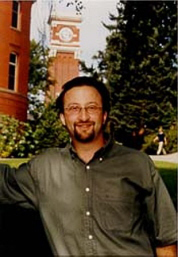Effect of toxins shown to skip generations, DDT linked to obesity

“What your great-grandmother was exposed to during pregnancy, like DDT, may promote a dramatic increase in your susceptibility to obesity, and you will pass this on to your grandchildren in the absence of any continued exposures,” says WSU professor Michael Skinner.
Research shows ancestral exposures to environmental compounds like the insecticide DDT may be a factor in high rates of obesity. The finding comes as DDT is getting a second look as a tool against malaria.
Read the full story at WSU News
Read latest research finding in the
current issue of the journal BMC Medicine.



